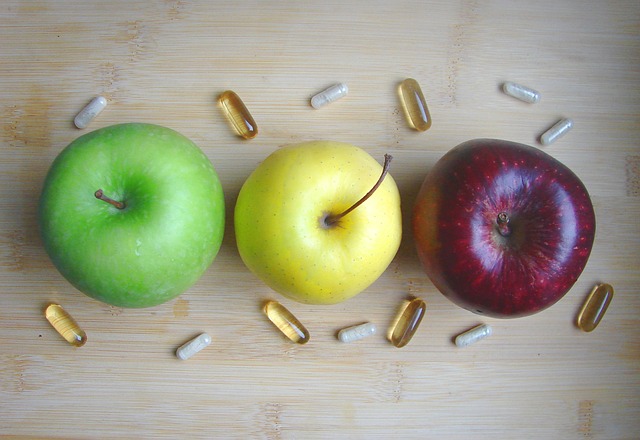Can Nutritional Supplements Really Help with Weight Management? If So, Which Supplements Are Best?

Losing weight can be a challenge. To give yourself the best chance at successful weight loss, you need to get your body’s metabolism and digestion in good condition.Nutritional supplementsare great additions to your diet and weight loss plan since some can help you burn more calories when you exercise, and they can convert less food into fat stores.
Here we’ll discuss a few options you can try to support your efforts to lose weight or maintain a healthy body mass index. As with any weight loss aids, they will work best if you eat a healthy diet and exercise regularly.
Table of Contents
Probiotics
Trillions of bacteria and yeast cells call your intestines home. These microbes help your gut stay healthy and process the food you eat. They can digest some compounds that we otherwise can’t, such as dietary fiber, and promote healthier levels of inflammation along your digestive tract. A flourishing gut microbiome is essential for managing both weight and blood sugar.
Clinical trials have found that taking probiotic supplements can support a healthyBMI (body mass index), weight, and improve the percentage of lean muscle mass in your body.1They are more effective if you take them along with prebiotic supplements. Prebiotics are dietary fibers like fructooligosaccharides (FOS) which provide nourishment for your gut bacteria.2
Dietary Fiber
There are several other ways that fiber can help your digestion in addition to feeding your gut microbiome.It can also promote healthy blood pressure, cholesterol, and triglyceride levels, and help you process blood sugar better.3
The more fiber you eat every day, the less likely you are to be overweight.4 However, the average American only gets about half of the recommended daily intake of fiber. Taking a fiber supplement, such as Whole Fiber Fusion, is a great way to make sure you get your daily dose, especially if you are on a low-carbohydrate diet.
Berberine
An incredible number of natural chemicals with health benefits can be found in nature. Many plantsproduce organic compounds that can give a natural boost to your body’s metabolic processes. One of these is Berberine, a molecule found in several plants, including barberry, Oregon grape, and California poppies.
Berberine can help regulate several of your body’s processes, such as sugar and fat processing. Taking Berberine can help lower blood sugar and lipids, including triglycerides and cholesterol.5,6Studies in rodents show that it can reduce fat buildup in the liver and can support healthier body weight, at least in part because it increases the rate at which energy is burned.7
Fish Oil
Fish oil is rich in omega-3 fatty acids, called “healthy fats” because of their numerous health benefits. These can help promote healthierlevels of inflammation throughout your body and can improve your cellular health and metabolism, which is great for burning calories. Supplementing with omega-3 fatty acids can help lower your waist circumference and waist/hip ratio.8 When you take fish oil supplements as a part of a healthy diet and exercise routine, it can support healthy weight loss.
Vitamin D
If you have noticed a theme by now, it is that a healthy metabolism is essential for efficient weight loss. One of the most important nutrients for your metabolism is vitamin D. People who are overweight tend to have lower amounts of vitamin D in their body,9although the exact relationship isn’t fully understood yet.
What doctors do know is that vitamin D helps keep your hormones in balance and maintains homeostasis for several other systems in your body. Supplementing with vitamin D can lower the risk of medical conditions associated with obesity,10 and can promote a reduction in body fat.9
Everyone wants to look and feel their best. Research-backed dietary supplements can help you do just that. So, if you are looking for a natural way to enhance your health and reach your weight loss goals, speak to your doctor today about how supplements can help.
References
- John GK, Wang L, Nanavati J, Twose C, Singh R, Mullin G. Dietary Alteration of the Gut Microbiome and Its Impact on Weight and Fat Mass: A Systematic Review and Meta-Analysis. Genes. 2018;9(3).
- Roberfroid M, Gibson GR, Hoyles L, et al. Prebiotic effects: metabolic and health benefits. The British journal of nutrition. 2010;104 Suppl 2:S1-63.
- Bozzetto L, Costabile G, Della Pepa G, et al. Dietary Fibre as a Unifying Remedy for the Whole Spectrum of Obesity-Associated Cardiovascular Risk. Nutrients. 2018;10(7).
- Slavin JL. Dietary fiber and body weight. Nutrition (Burbank, Los Angeles County, Calif). 2005;21(3):411-418.
- Zhao L, Cang Z, Sun H, Nie X, Wang N, Lu Y. Berberine improves glucogenesis and lipid metabolism in nonalcoholic fatty liver disease. BMC endocrine disorders. 2017;17(1):13.
- Hu Y, Ehli EA, Kittelsrud J, et al. Lipid-lowering effect of berberine in human subjects and rats. Phytomedicine : international journal of phytotherapy and phytopharmacology. 2012;19(10):861-867.
- Zhang Z, Zhang H, Li B, et al. Berberine activates thermogenesis in white and brown adipose tissue. Nature communications. 2014;5:5493.
- Du S, Jin J, Fang W, Su Q. Does Fish Oil Have an Anti-Obesity Effect in Overweight/Obese Adults? A Meta-Analysis of Randomized Controlled Trials. PloS one. 2015;10(11):e0142652.
- Mallard SR, Howe AS, Houghton LA. Vitamin D status and weight loss: a systematic review and meta-analysis of randomized and nonrandomized controlled weight-loss trials. The American journal of clinical nutrition. 2016;104(4):1151-1159.
- Bosdou JK, Konstantinidou E, Anagnostis P, Kolibianakis EM, Goulis DG. Vitamin D and Obesity: Two Interacting Players in the Field of Infertility. Nutrients. 2019;11(7).
